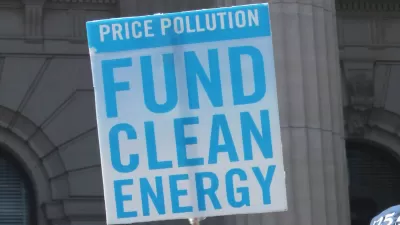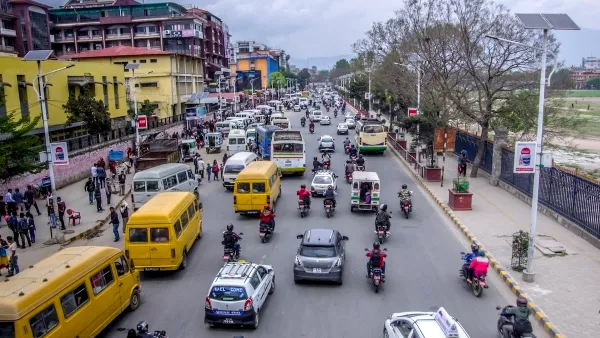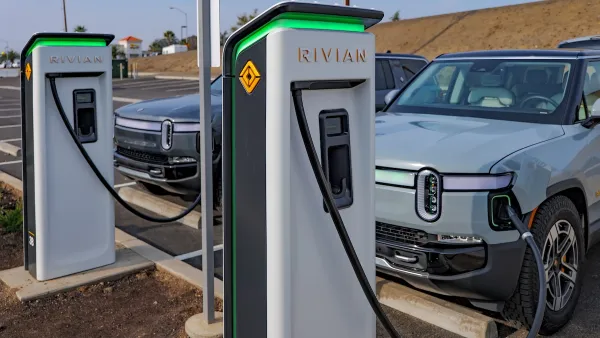A new report by Environment America suggests that increased ridership in 2008 reduced global warming gases significantly, and increasing ridership by 10% more could save the equivalent of all the oil we import from the Persian Gulf.
From the press release: "Growing demand and preference for transit warrant an overhaul of public transportation policy, rather than a business-as-usual approach. This would fully capitalize on the growth opportunity evidenced in 2008 and 2009, deliver significant energy and environmental benefits, and put the nation firmly on track to energy independence.
Such an overhaul could take the form of setting a high yet realistic target for increasing transit ridership by 10 percent annually. This level was achieved across many states and transit systems in 2008 and 2009, and in 15 years such an approach could reduce transportation oil consumption by 20 billion gallons per year - equivalent to what we currently import from the Persian Gulf."
FULL STORY: Reaching our climate goals by increasing transit ridership

Planetizen Federal Action Tracker
A weekly monitor of how Trump’s orders and actions are impacting planners and planning in America.

Maui's Vacation Rental Debate Turns Ugly
Verbal attacks, misinformation campaigns and fistfights plague a high-stakes debate to convert thousands of vacation rentals into long-term housing.

Restaurant Patios Were a Pandemic Win — Why Were They so Hard to Keep?
Social distancing requirements and changes in travel patterns prompted cities to pilot new uses for street and sidewalk space. Then it got complicated.

In California Battle of Housing vs. Environment, Housing Just Won
A new state law significantly limits the power of CEQA, an environmental review law that served as a powerful tool for blocking new development.

Boulder Eliminates Parking Minimums Citywide
Officials estimate the cost of building a single underground parking space at up to $100,000.

Orange County, Florida Adopts Largest US “Sprawl Repair” Code
The ‘Orange Code’ seeks to rectify decades of sprawl-inducing, car-oriented development.
Urban Design for Planners 1: Software Tools
This six-course series explores essential urban design concepts using open source software and equips planners with the tools they need to participate fully in the urban design process.
Planning for Universal Design
Learn the tools for implementing Universal Design in planning regulations.
Heyer Gruel & Associates PA
JM Goldson LLC
Custer County Colorado
City of Camden Redevelopment Agency
City of Astoria
Transportation Research & Education Center (TREC) at Portland State University
Jefferson Parish Government
Camden Redevelopment Agency
City of Claremont





























